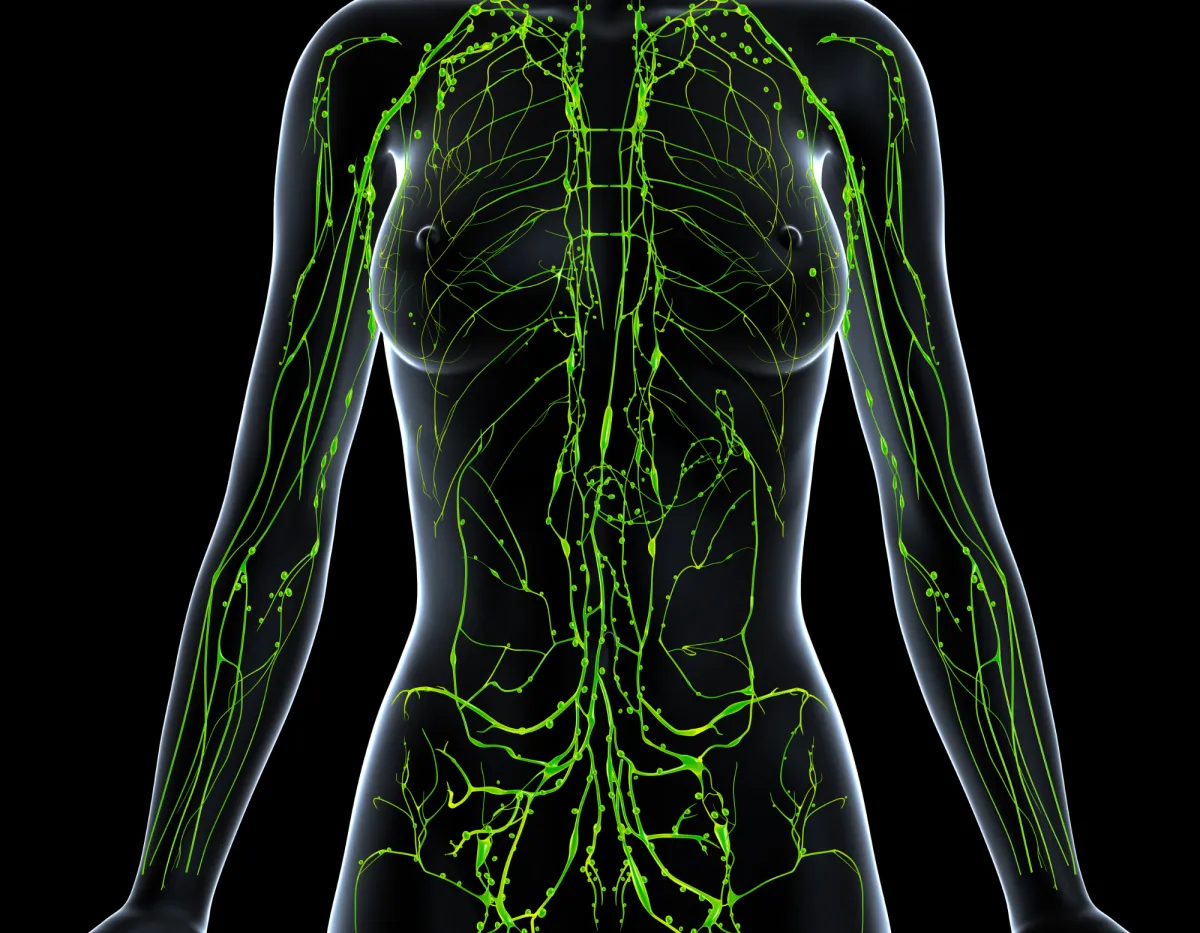
Understanding the Unsung Hero: How the Lymphatic System Sustains Our Health
Understanding the Unsung Hero: How the Lymphatic System Sustains Our Health
Introduction:
The human body is an intricate masterpiece, comprising numerous systems that work harmoniously to ensure its proper functioning. While many are familiar with the cardiovascular or digestive systems, the lymphatic system, often overlooked, plays an equally crucial role in maintaining our overall health and well-being. Functioning as the body's defense mechanism and waste disposal system, the lymphatic system serves as an unsung hero, safeguarding us from potential threats and maintaining the delicate balance within.

Unveiling the Mysteries of the Lymphatic System
The lymphatic system, consisting of a network of vessels, nodes, and organs, serves as a key player in our immune system, working tirelessly to protect the body against harmful pathogens and foreign invaders. Comprising lymphatic vessels that closely resemble blood vessels, this intricate network circulates a colorless fluid called lymph, which carries essential immune cells, such as lymphocytes, throughout the body.
The lymphatic system primarily works in four key steps:
Lymphatic Fluid Circulation: Lymph, derived from interstitial fluid, bathes the body's cells, carrying essential nutrients and oxygen, while simultaneously collecting waste products and toxins.
Filtration and Immune Surveillance: Lymph nodes, strategically located throughout the body, act as filtration centers, removing foreign particles, pathogens, and abnormal cells. Within these nodes, specialized white blood cells identify and neutralize potential threats, bolstering our immune response.
Pathogen Destruction: The lymphatic system collaborates with the immune system, deploying lymphocytes to identify and destroy harmful microorganisms, preventing infections and diseases from taking hold.
Waste Removal: Besides its immunological role, the lymphatic system serves as a vital waste disposal mechanism, collecting and transporting excess fluids, cellular waste, and unwanted debris back to the bloodstream for elimination via the excretory organs.
The Importance of a Well-Functioning Lymphatic System
A properly functioning lymphatic system is integral to maintaining overall health and vitality. Several key reasons underscore its significance:
Immune Defense: The lymphatic system acts as the body's first line of defense, detecting and neutralizing potential threats before they can cause harm, bolstering the immune response against infections, diseases, and other health risks.
Fluid Balance: By regulating the fluid balance within tissues, the lymphatic system prevents the onset of edema, a condition characterized by excessive fluid retention, which can lead to swelling and discomfort.
Nutrient Transport: Apart from waste removal, the lymphatic system facilitates the transportation of essential nutrients, hormones, and enzymes throughout the body, ensuring that cells receive the necessary resources for optimal functioning.
Toxin Elimination: By efficiently eliminating metabolic waste and toxins, the lymphatic system supports the body's detoxification process, preventing the buildup of harmful substances that can compromise cellular health.
Maintaining a Healthy Lymphatic System
Despite its critical role, the lymphatic system can face challenges that hinder its optimal functioning. Factors such as sedentary lifestyles, poor dietary choices, chronic stress, and certain medical conditions can impede lymphatic flow, leading to a compromised immune response and increased susceptibility to illnesses.
To support the health of the lymphatic system, incorporating the following practices into one's lifestyle can be beneficial:
Regular Exercise: Engaging in physical activities, such as yoga, swimming, or brisk walking, can promote lymphatic circulation and prevent the stagnation of lymphatic fluid.
Healthy Diet: Consuming a nutrient-rich diet, abundant in fruits, vegetables, and whole grains, can provide essential antioxidants and vitamins that support the lymphatic system's detoxification processes.
Hydration: Maintaining adequate hydration levels is crucial for ensuring the efficient flow of lymphatic fluid and preventing dehydration-related complications.
Stress Management: Adopting stress-reduction techniques, like meditation, deep breathing, and mindfulness, can help alleviate stress-induced lymphatic congestion, promoting overall well-being.
Title: Understanding the Unsung Hero: How the Lymphatic System Sustains Our Health
The human body is an intricate masterpiece, comprising numerous systems that work harmoniously to ensure its proper functioning. While many are familiar with the cardiovascular or digestive systems, the lymphatic system, often overlooked, plays an equally crucial role in maintaining our overall health and well-being. Functioning as the body's defense mechanism and waste disposal system, the lymphatic system serves as an unsung hero, safeguarding us from potential threats and maintaining the delicate balance within.
Unveiling the Mysteries of the Lymphatic System
The lymphatic system, consisting of a network of vessels, nodes, and organs, serves as a key player in our immune system, working tirelessly to protect the body against harmful pathogens and foreign invaders. Comprising lymphatic vessels that closely resemble blood vessels, this intricate network circulates a colorless fluid called lymph, which carries essential immune cells, such as lymphocytes, throughout the body.
The lymphatic system primarily works in four key steps:
Lymphatic Fluid Circulation: Lymph, derived from interstitial fluid, bathes the body's cells, carrying essential nutrients and oxygen, while simultaneously collecting waste products and toxins.
Filtration and Immune Surveillance: Lymph nodes, strategically located throughout the body, act as filtration centers, removing foreign particles, pathogens, and abnormal cells. Within these nodes, specialized white blood cells identify and neutralize potential threats, bolstering our immune response.
Pathogen Destruction: The lymphatic system collaborates with the immune system, deploying lymphocytes to identify and destroy harmful microorganisms, preventing infections and diseases from taking hold.
Waste Removal: Besides its immunological role, the lymphatic system serves as a vital waste disposal mechanism, collecting and transporting excess fluids, cellular waste, and unwanted debris back to the bloodstream for elimination via the excretory organs.
The Importance of a Well-Functioning Lymphatic System
A properly functioning lymphatic system is integral to maintaining overall health and vitality. Several key reasons underscore its significance:
Immune Defense: The lymphatic system acts as the body's first line of defense, detecting and neutralizing potential threats before they can cause harm, bolstering the immune response against infections, diseases, and other health risks.
Fluid Balance: By regulating the fluid balance within tissues, the lymphatic system prevents the onset of edema, a condition characterized by excessive fluid retention, which can lead to swelling and discomfort.
Nutrient Transport: Apart from waste removal, the lymphatic system facilitates the transportation of essential nutrients, hormones, and enzymes throughout the body, ensuring that cells receive the necessary resources for optimal functioning.
Toxin Elimination: By efficiently eliminating metabolic waste and toxins, the lymphatic system supports the body's detoxification process, preventing the buildup of harmful substances that can compromise cellular health.
Maintaining a Healthy Lymphatic System
Despite its critical role, the lymphatic system can face challenges that hinder its optimal functioning. Factors such as sedentary lifestyles, poor dietary choices, chronic stress, and certain medical conditions can impede lymphatic flow, leading to a compromised immune response and increased susceptibility to illnesses.
To support the health of the lymphatic system, incorporating the following practices into one's lifestyle can be beneficial:
Regular Exercise: Engaging in physical activities, such as yoga, swimming, or brisk walking, can promote lymphatic circulation and prevent the stagnation of lymphatic fluid.
Healthy Diet: Consuming a nutrient-rich diet, abundant in fruits, vegetables, and whole grains, can provide essential antioxidants and vitamins that support the lymphatic system's detoxification processes.
Hydration: Maintaining adequate hydration levels is crucial for ensuring the efficient flow of lymphatic fluid and preventing dehydration-related complications.
Stress Management: Adopting stress-reduction techniques, like meditation, deep breathing, and mindfulness, can help alleviate stress-induced lymphatic congestion, promoting overall well-being.
Conclusion
In the intricate symphony of the human body, the lymphatic system stands as a resilient guardian, tirelessly working to maintain the delicate equilibrium necessary for optimal health. Understanding its significance and implementing lifestyle practices that promote its well-being can not only enhance our immune defense but also foster a sense of vitality and well-being. Embracing the holistic care of the lymphatic system is a testament to our commitment to nurturing our bodies and living life to its fullest potential.
Opening hours
Mon- Fri 7AM - 7PM
Sunday Closed
Contacts
Location
Rockin Bod Studio
600 Monroe St Suite 200 B
JEFFERSON CITY, Missouri 65101



